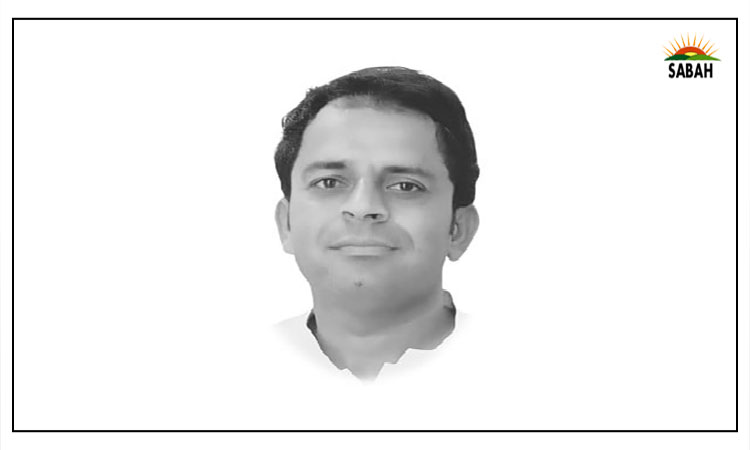SPSC and AI…Ali Hassan Bangwar
Throughout millennia of intellectual evolution, humankind has relentlessly sought to transmit real intelligence and knowledge to others in the shortest possible time. Over time, these efforts have evolved from informal, haphazard learning through experimentation and trial-and-error to structured pedagogical practices of education.
However, the relatively slow pace of knowledge transmission within traditional education systems has spurred a significant shift towards developing intelligent machines capable of outpacing human learning. This ushered in an era of Artificial Intelligence, where humanoids and machines, while still incompletely emulating human intelligence, assist humans. Nevertheless, developing AI modalities with specific features still requires years, if not decades.
Fortunately, the Sindh Public Service Commission (SPSC) has made significant strides in the swiftness of artificially adding to human intelligence. Unlike AI, which involves humans installing artificial intelligence into machines, SPSC aims to artificially enhance human intelligence. This might be surprising, given that the scientific community is experiencing limitations in the same. But the fact remains that SPSC’s recruitment process artificially adds to the intelligence of candidates who submit to its implied parameter of merit well before undergoing its actual recruitment process.
Just like the development of AI, the recruitment process at the SPSC also requires significant financial investment. However, the cost of SPSC’s artificial intelligence is a fraction of real AI’s. While traditional AI solutions can be prohibitively expensive, SPSC’s artificial enhancement of intelligence in humans is relatively affordable, with charges ranging from 4 to 40 million.
The exact cost depends on the level of intelligence each position demands and the perks it offers to the artificially intelligent and successful. By providing a way to enhance human intelligence artificially, SPSC demonstrates that money can, indeed, be used to buy a form of intelligence, albeit an artificial and temporary one, from and succeed through it.
However, the level of potential intelligence depends on one’s socioeconomic potential: the more financially capable one is, the more intelligence one can get in recruitment and the result. One’s lucky enough to earn SPSC’s blessed glances leave their paper(s) in a state of intellectual emptiness, similar to the concept of tabula rasa.
This allows for the artificial enhancement of intelligence, without any interference from technicalities or cognitive contamination. Subsequently, the commission skillfully and artificially installs intelligence into those it deems eligible for success, regardless of their natural intellect, understanding or knowledge. Perhaps for it, organic intellect in the age of AI is a secondary consideration. Hence, it is treated as such.
Does the institution create the intelligence that it artificially installs on humans? The answer, perhaps, is a big no. Instead, the probable answer is that the commission metamorphosises the natural intelligence of capable aspirants into artificial intelligence, albeit temporarily, and bestows it upon those who have satisfied the implied standards of merit. This way, the commission acts as a reverse alchemist in its results, transforming the unintelligent into intelligent and vice versa.
One might wonder why SPSC’s artificially enhanced intelligence does not seem to have a positive impact on service delivery in the province. The reason for this is the limitations of artificially added intelligence to humans, which can struggle to perform in real-world scenarios. Unlike organically cultivated intelligence and real AI, the commission’s artificially added intelligence lacks empathy and integrity, and is temporary, evaporating after results.
Thanks to its groundbreaking contribution to artificial intelligence, SPSC rarely ignites hope, however unrealistic, for the most deserving who have spent years developing their natural intellectual and academic abilities. Perhaps the implied justification is that the commission recognises the pain of dashed expectations, and therefore chooses not to raise the same for most of the natural talent in the sweeping age of AI.
COURTESY ![]()












